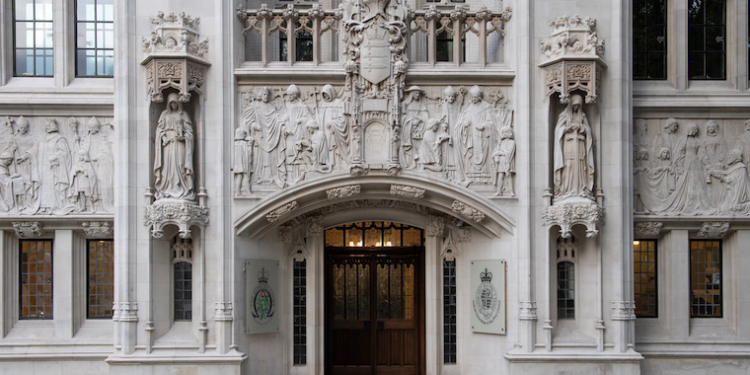By THE OBSERVER UG
UK’s Supreme court has dismissed efforts by Uganda’s dfcu bank, and its shareholders to block a £170m (about Shs 825 billion) suit brought against them by the former Crane bank.
Justices; Lord Lloyd-Jones, Lord Leggatt and Lord Burrows ruled that dfcu’s appeal, “doesn’t raise an arguable point of law”, which the court should consider before trial.
The ruling follows a suit in which Crane Bank Limited shareholders sued dfcu, its management, directors and shareholders, accusing the bank of allegedly colluding with the Central Bank to unlawfully seize, under price and fraudulently, sell off Crane bank.
Shareholders of the former Crane bank allege that former senior officials at the Bank of Uganda, engaged in a corrupt scheme to take control of the Crane bank and sell its assets at a gross undervalue.
Dfcu took over Crane Bank and its assets for Shs 200 billion in January 2017 after Bank of Uganda put it up for sale after Crane bank ran into trouble in October 2016 when it became undercapitalized – with Bank of Uganda appointing a statutory manager for Crane bank and later placing the bank under receivership before selling it to dfcu – putting to an end a bank that many thought was too big to fail.
Crane bank, together with its shareholders, contend that dfcu bank and the other defendants, took part in this scheme and purchased Crane bank’s assets at a gross undervalue.
“After consideration of the applications filed on behalf of the appellants (dfcu Bank Limited) and another seeking permission to appeal the order made by the Court of Appeal on July 26, 2023, and of the notices of objection filed by the respondents (Crane Bank Limited ) and others, the court ordered that permission to appeal be refused because the applications do not raise an arguable point of law, which the court should consider at the time before trial,” the ruling dated January 8, 2024, reads in part.
Court also ordered that “in each application, the appellants pay the respondents’ costs, the amount of those costs to be assessed if not agreed.”
In 2022, High court judge, HH Pelling KC, gave dfcu bank a temporary victory and ruled that the matter was bound by the foreign act state of rule. However, Crane bank shareholders appealed the ruling and in a unanimous ruling of July 26, 2023, three London appellate court justices, argued that the claim is not barred by the foreign act of state doctrine.
It ruled that while the act of taking over Crane bank and placing it under receivership by the Central Bank was a sovereign act, the BOU, in acting as a receiver, must be taken to have owed the usual common law and equitable duties to its principal (CBL) to act in good faith and to obtain a proper price for property under receivership.
Dfcu and its shareholders, appealed against the ruling in the Supreme court, which has now been dismissed, clearing ground for the main case to start. Dfcu and its former directors had sought to avoid accountability in this case by presenting a jurisdiction challenge, arguing that the sale of the assets of Crane Bank Limited to dfcu by the Central Bank, was an act of state by the government of Uganda, and that UK courts had no jurisdiction to hear the case.
This argument was rejected by the UK Court of Appeal, and they were ordered to file their defences and proceed to trial in the UK High court. They then sought leave of the UK Court of Appeal to appeal this decision to the UK Supreme court, which leave was denied. They then filed another application seeking the leave to appeal from the UK Supreme court.
This application has also been refused as the UK Supreme court found no merit in their application. They have been ordered to pay costs and must now file their defences within 21 days.
Dfcu Limited, dfcu Bank Limited, and its shareholders have all been sued in the UK in a case seeking the recovery of over $220 million, before assessment of additional damages, which experts believe will raise the amount to be recovered to over $500 million.







Discussion about this post